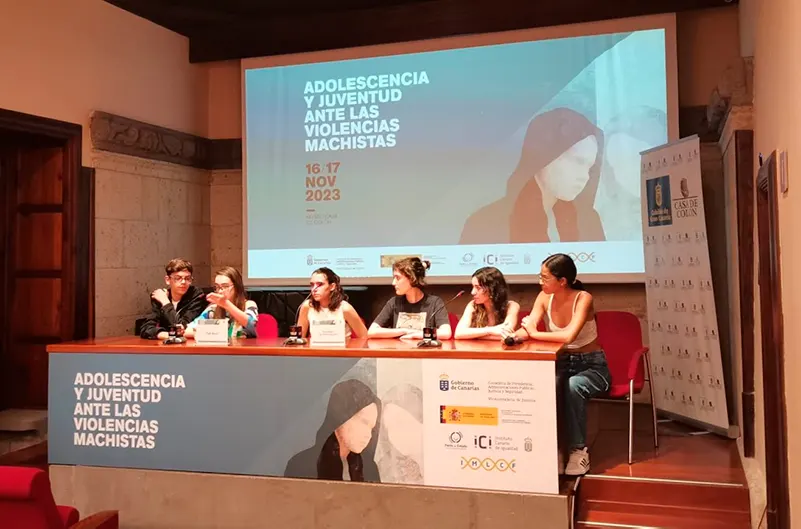The organisation participates in the event organised by the Institute of Legal Medicine and Forensic Sciences.
The director of the organisation Opciónate, Ana Lidia Fernández-Layos, highlighted the importance of institutional coordination in the fields of health, education, justice and state security forces so that there is no impunity and so that there is adequate support for the young women affected. One of the most interesting aspects of the event was that it featured the valuable live opinion of a group of students in the first and second years of ESO from the IES Pérez Galdós Secondary School in Las Palmas de Gran Canaria.
The intervention took place in the framework of this event organised by the Institute of Legal Medicine and Forensic Sciences in Las Palmas in collaboration with the Vice-Ministry of Justice of the Government of the Canary Islands, in the context of the training measures of the State Pact against Gender Violence and with the focus on tackling male violence from specific perspectives and with a multidisciplinary vision.
In this sense, Opciónate also explained what the main gender-based cyber-violences that are occurring at the moment consist of. It also described prevention and approach strategies that include the importance of gender awareness and digital education of professionals in the prevention and care of violence against children, adolescents and families, as well as the dissemination of the main protocols, and care and support services, including the SIPACM (Island Service for the Prevention and Care of gender-based cyber-violence of Gran Canaria), coordinated by Opciónate and funded by the Department of Equality of the Cabildo de Gran Canaria.
The conference took place on 16 and 17 November at the Casa de Colón in Las Palmas de Gran Canaria and was inaugurated by the Councillor for Culture of the Cabildo, Guacimara Medina, the Deputy Minister of Justice of the Government of the Canary Islands, Cesáreo Rodríguez, and the Deputy Director of the IMLCF, Eva Bajo, who stressed that this year the focus was on adolescence, a stage in people’s lives that is as essential as it is critical.
The organisation stresses that “today we know that the experiences lived, the environment and the emotional situation during the transition to adulthood have an impact on the construction of the person, on their personality and on the style of coping with reality and on the way in which the person conceives themselves and in relation to others”.
“The complexity of today’s societies, globalisation, the phenomenon of migratory movements, information and communication technologies”, add the Institute, “provide scenarios that affect adolescents and that need to be analysed and considered by public administrations in order to adapt their actions to children and adolescents”.
Along these lines, this year the aim was to analyse the problems surrounding adolescence with professionals who work with and for adolescents, especially those related to gender violence against them and between peers. The ways in which this violence is exercised, the scenarios in which it takes place and how it affects the neurobiological, psychological and emotional development of adolescents, as well as the factors of protection and vulnerability, were therefore addressed.


